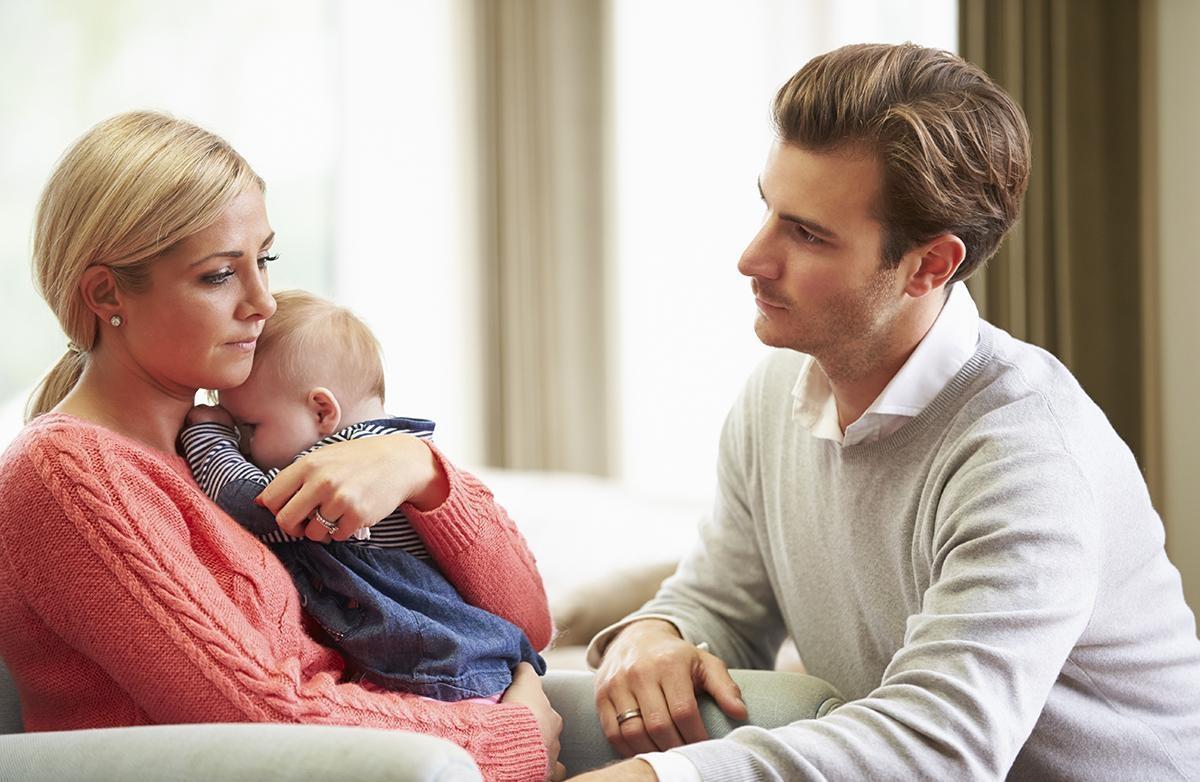Moms Who Hurt: Postpartum Depression Linked to Domestic Violence
May 17, 2016
 1407
1407 
Many new mothers experience the “post-baby blues.” And when you think about it, it’s hard to imagine why they wouldn’t. Crying babies, middle-of-the-night feedings, a post-baby body that’s not quite “sexy,” . . . and the list goes on and on.
Now, we know that the “blues” can be much more than that. Postpartum depression, while often looked upon as a “faux” condition by many, is the real deal. But are some new moms more susceptible, so to speak, to depression? Could there be underlying factors that cause one mom to suffer more severely than another?
It looks that way. After some recent research, medical experts have found what is believed to be a link between domestic violence and postpartum depression. Results from the studies suggest that mothers suffering from postpartum depression are more likely to be involved in violent relationships compared to mothers who aren’t depressed. And women who are victims of domestic violence tend to develop postpartum depression more often than women who aren’t exposed to that abuse.
Details of the Study
The study surveyed new mothers with babies six months or younger, and was spearheaded by Dr. Barry Solomon, a pediatrics professor at John Hopkins’ Children’s Center.
New mothers tend to visit the pediatrician quite frequently, so Dr. Solomon and his research team decided to capitalize on this by providing surveys for moms to fill out. The screenings showed that most of the new mothers were African American, and almost 30 percent of them were just teens.
The end results painted a grim picture: almost a quarter of all the new moms appeared to suffer from postpartum depression, and the ones who were in abusive relationships were twice as likely to have postpartum depression. Additionally, half of all women who were victims of domestic violence had some form of depression.
Like many other studies, further research is needed in order to determine if it the domestic violence is causing postpartum depression or the other way around. Or, perhaps, if neither causes the other, and instead these two conditions are merely linked in some other way.
The Devastating Effects
Oftentimes, women suffering from postpartum depression experience domestic violence in an entirely different, grisly way: killing their children. Experts believe that that there are over 100 cases of mothers killing their children each year in the United States alone.
Murderous mothers have recently come into more focus through the media. Almost everyone knows the story of Andrea Yates, who one day decided to drown each of her five children, ages six months to seven years, in the bathtub. Other examples include Deanna Laney, who killed her two sons, ages six and eight; and Lashanda Armstrong, who packed her three little children into her minivan and proceeded to drive into the Hudson River, killing everyone inside, including herself. The reason behind these seemingly senseless murders simply cannot be denied; many health officials attribute them to postpartum depression, domestic abuse, or both.
What We Can Learn
This new study stresses the importance of not only screening the mother’s physical health, but also tracking any underlying changes that may lead to developing postpartum depression . . . a depression that can spiral out of control when coupled with domestic violence.
Pediatricians have been given the results of Dr. Solomon’s surveys, as well as guidelines on how to conduct their own assessments in order to properly identify any danger before it gets out of hand. Awareness is key; and hopefully more studies like this one will continue to raise that awareness so we have fewer tragic stories to tell.

A new study suggests that a widely used sugar substitute found in diet sodas, chewing gum, and low-sugar yogurt may elevate insulin levels. This could increase the long-term risk of heart disease. “Artificial sweeteners have infiltrated nearly all types of food, making it crucial to understand their long-term health effects,” said Yihai Cao, senior author […]

Diet Coke has long been a fan-favorite among soda lovers who want a fizzy, guilt-free alternative to traditional soft drinks. While its zero-calorie, zero-sugar label makes it seem like a healthier option, the reality is far more concerning. Despite its undeniable popularity, Diet Coke’s nutritional profile has raised red flags among health experts for years. […]

New study shows that embracing an anti-inflammatory, plant-forward diet can support cognitive function and help reduce the risk of dementia. What You Eat Shapes Your Brain The food you eat doesn’t just impact your body—it also affects your brain. Research suggests that eating an anti-inflammatory, plant-based diet can help improve memory, focus, and overall brain […]